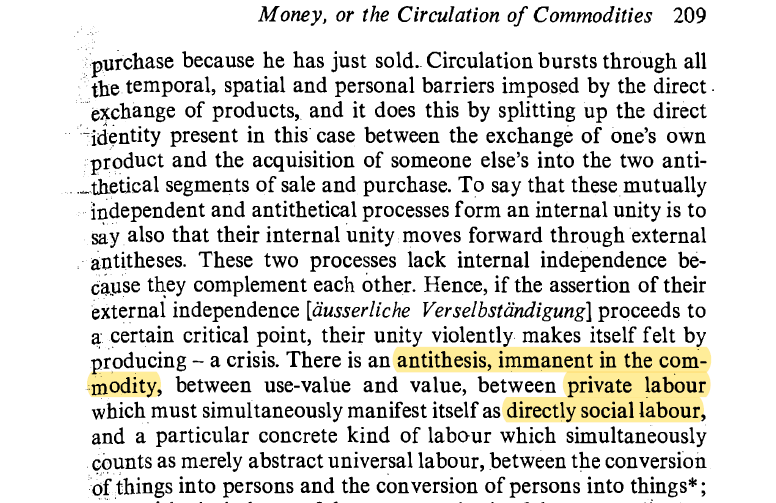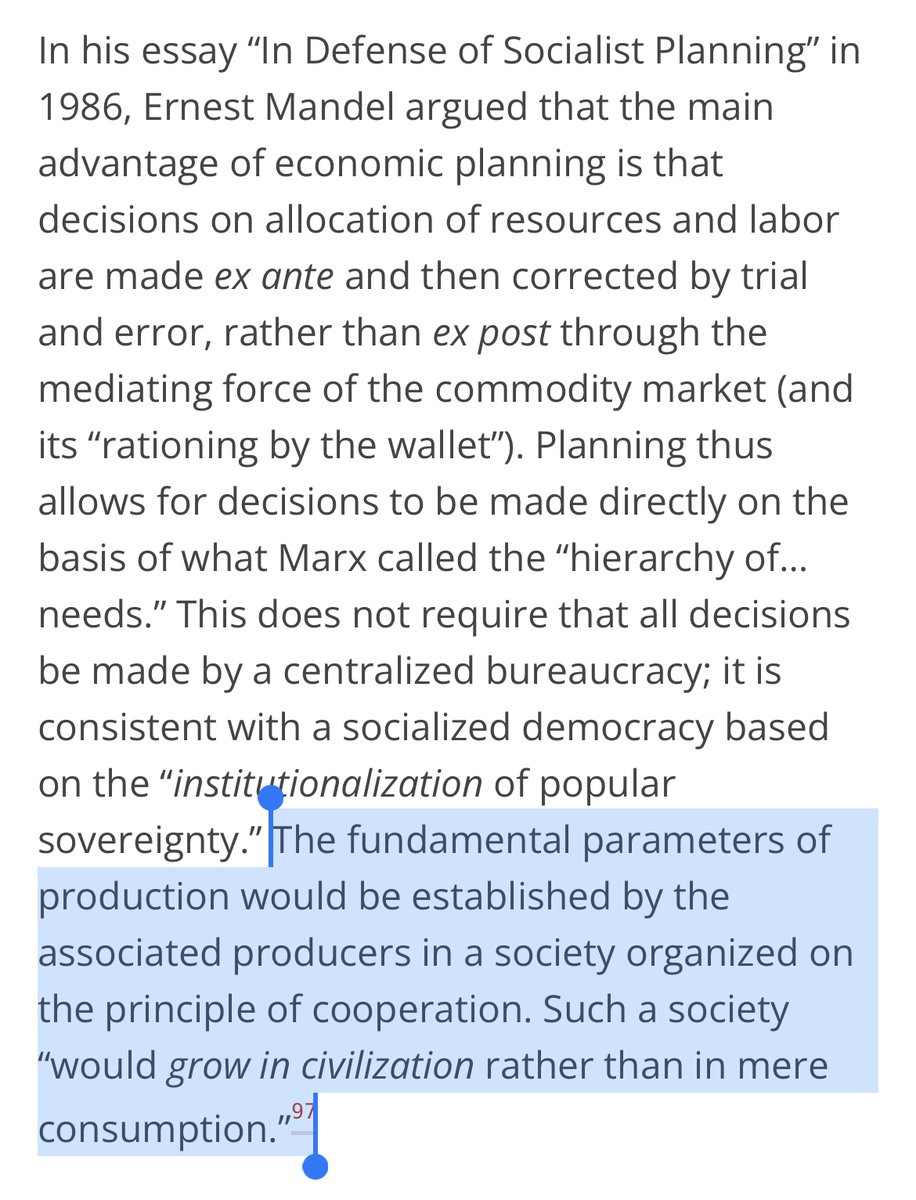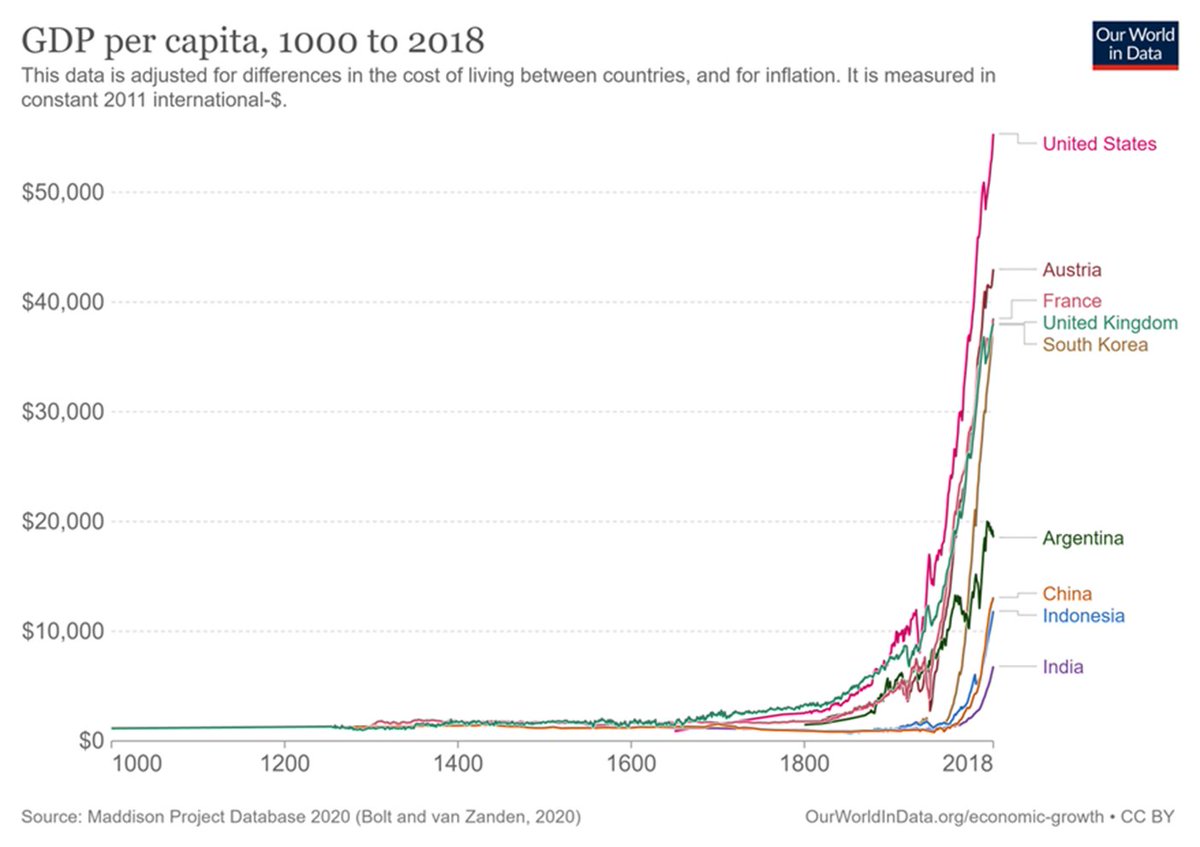🚨NEW article from me is OPEN access.
It explains the phenomenon of 'renewable capital' in the USA:
"a specific form of privatized wealth accumulation made possible by the ‘unbundling’ of electricity as a public utility."
Some highlights 👇🧵1/x
onlinelibrary.wiley.com/doi/10.1111/de…
It explains the phenomenon of 'renewable capital' in the USA:
"a specific form of privatized wealth accumulation made possible by the ‘unbundling’ of electricity as a public utility."
Some highlights 👇🧵1/x
onlinelibrary.wiley.com/doi/10.1111/de…
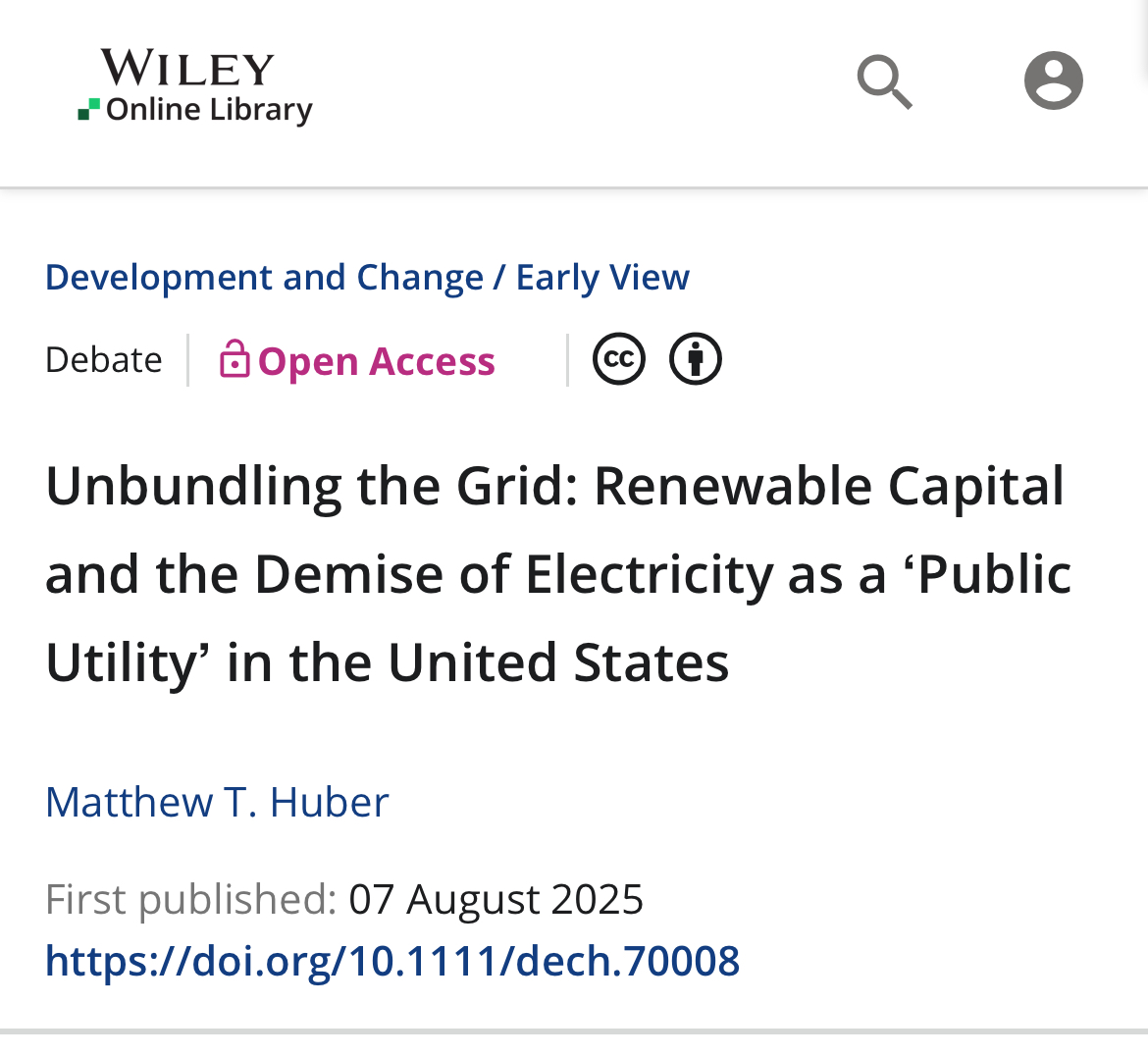
It starts w/ a paradox. Andreas Malm argued 'stock' resources like fossil fuels were more prone to capitalist property relations than 'flow' resources like water, solar and wind power.
So why are the 'flow' resources of solar & wind almost entirely privately owned today? 2/x

So why are the 'flow' resources of solar & wind almost entirely privately owned today? 2/x
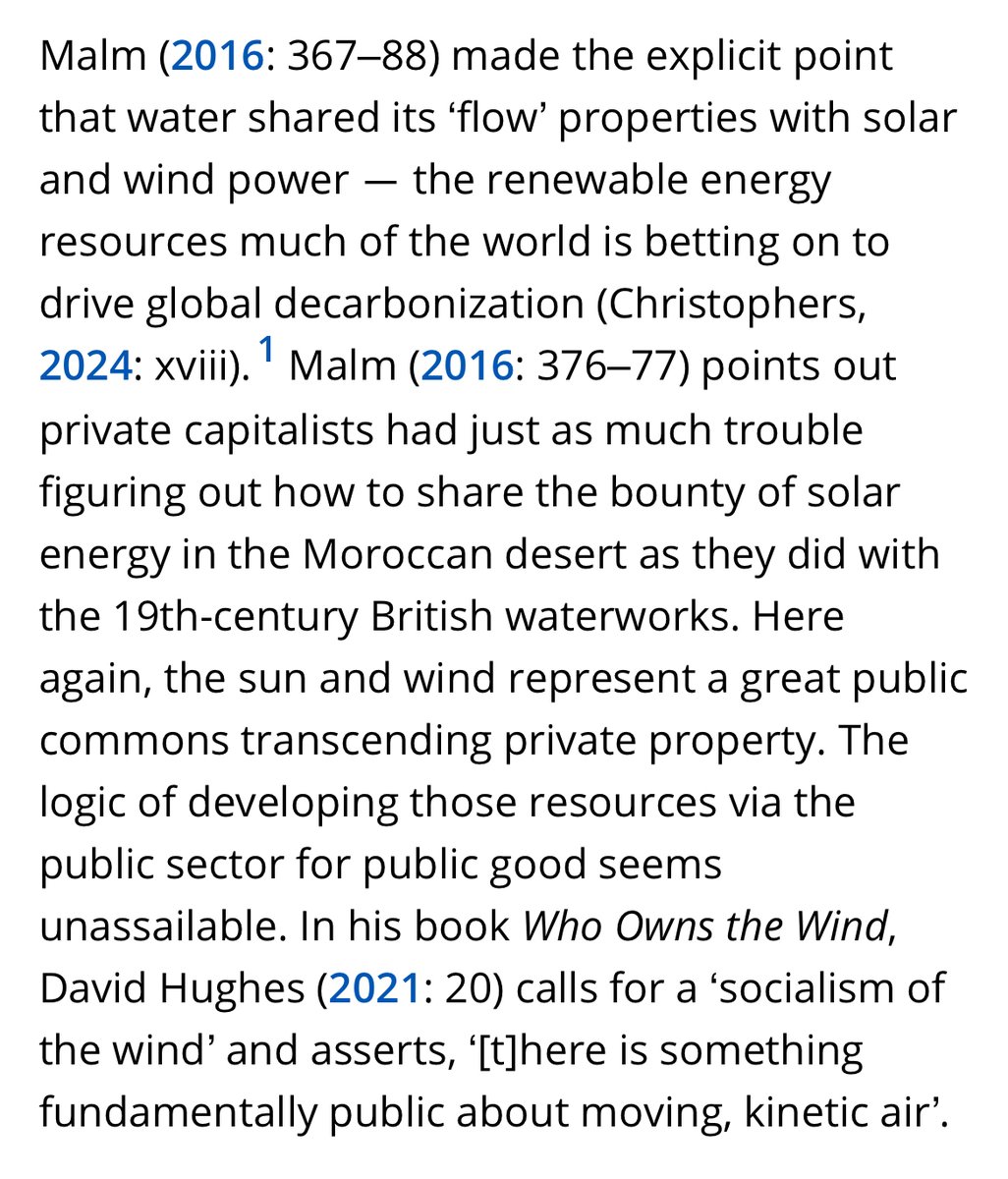
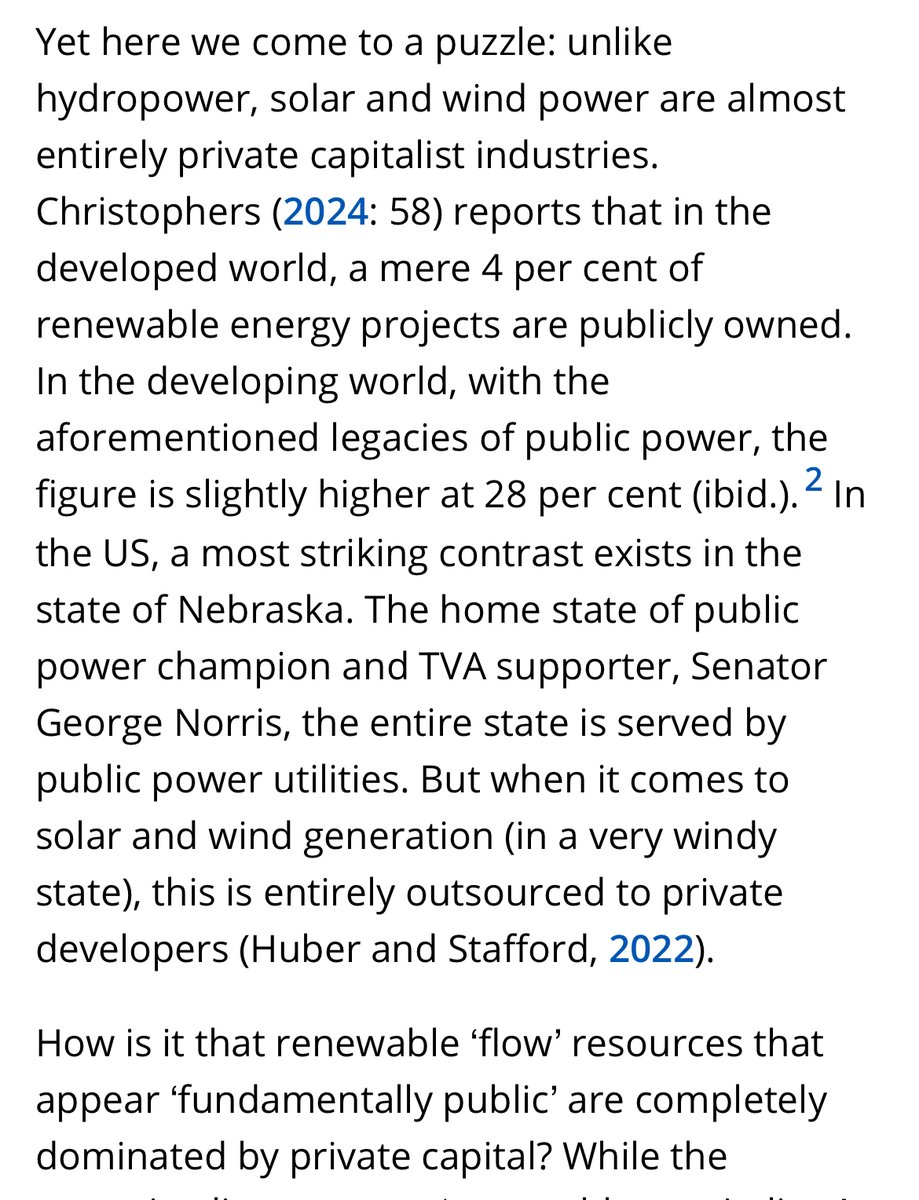
The answer? The renewable energy industry emerged from the deregulation of public utilities, but what are those?
✅Economic sectors deemed 'essential services' too impt to be left to markets.
✅Capital intensive industries requiring access a socialized investment model. 3/x

✅Economic sectors deemed 'essential services' too impt to be left to markets.
✅Capital intensive industries requiring access a socialized investment model. 3/x
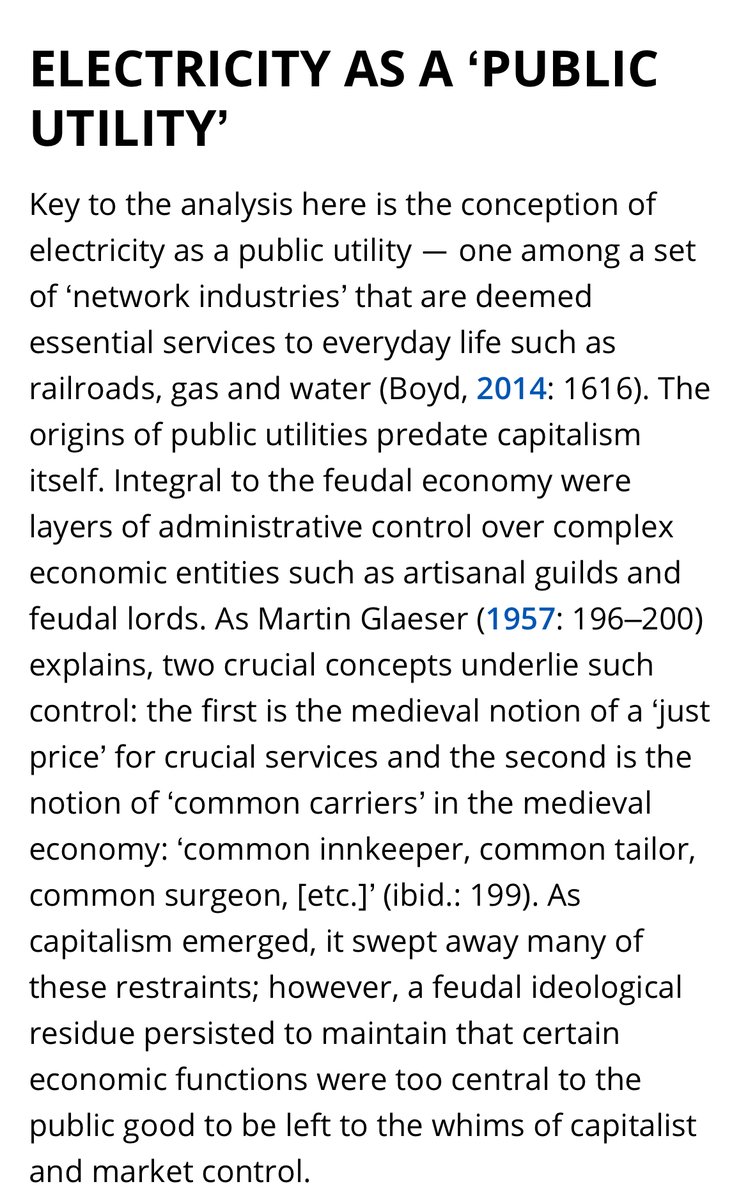
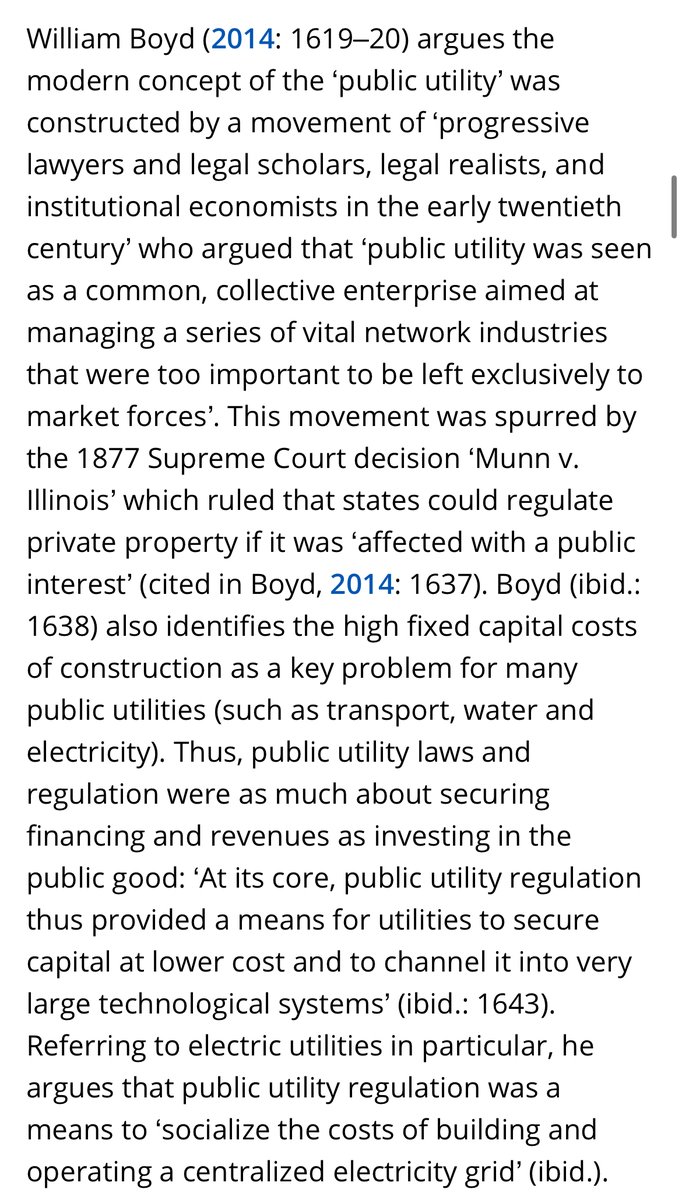
Utilities built the 20th Century grid effectively, at low cost, but by the 1970s they became a villain of neoliberal ideology. Like unions/govt they were seen as barriers to market competition. 4/x 

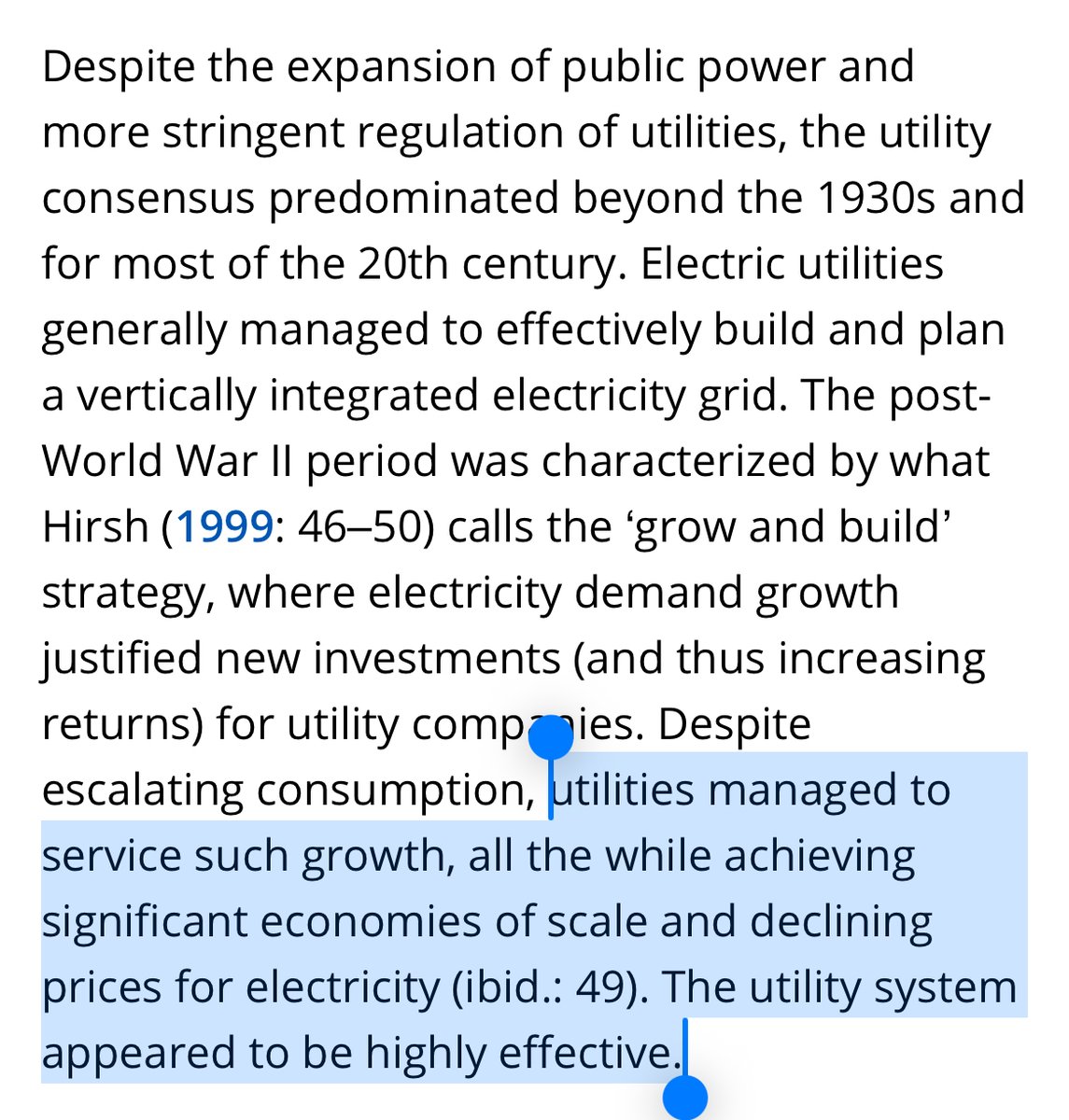
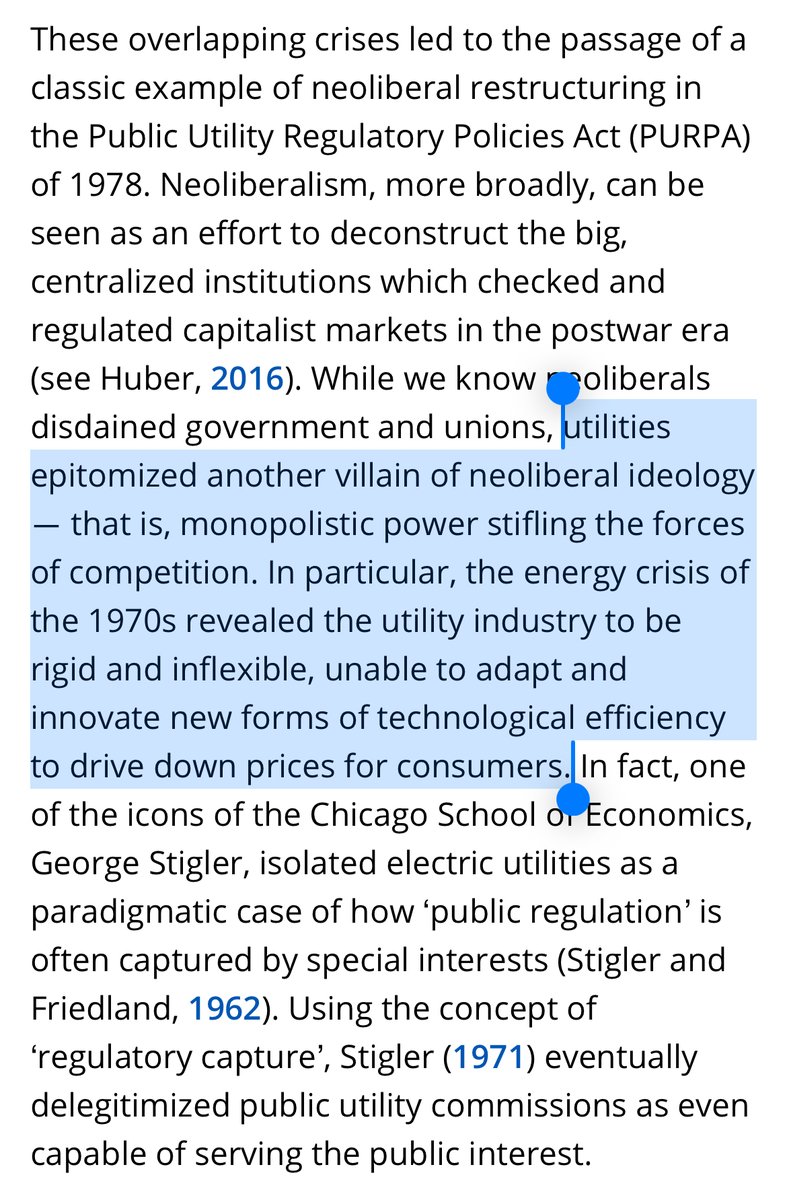
The coalition that emerged arguing for electricity deregulation was diverse including industrial capital seeking lower electricity costs, neoliberal economists, and environmentalists, like Amory Lovins, who idolized small-scale decentralized energy generation. 5/x 
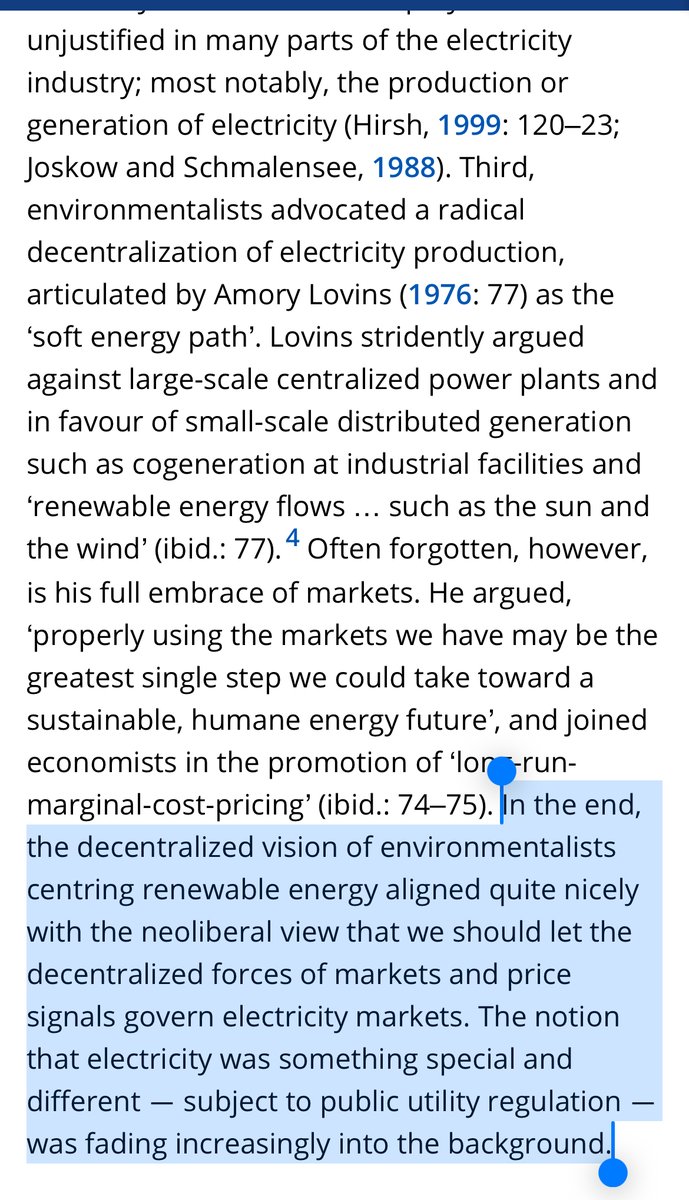
The result of deregulation was a new capitalist on the scene - small-scale power producers (eventually called 'independent power producers'). These capitalists were dislodged from the utility system, & only cared about profits, not the larger 'public service' of the utility. 6/x 

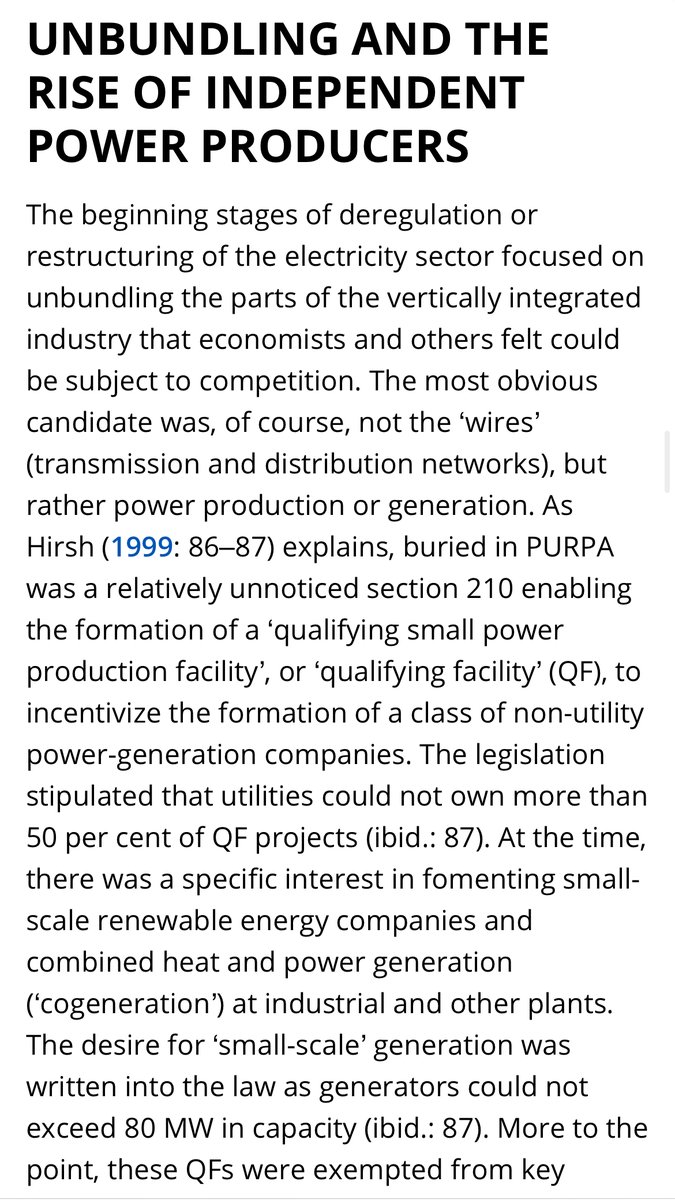
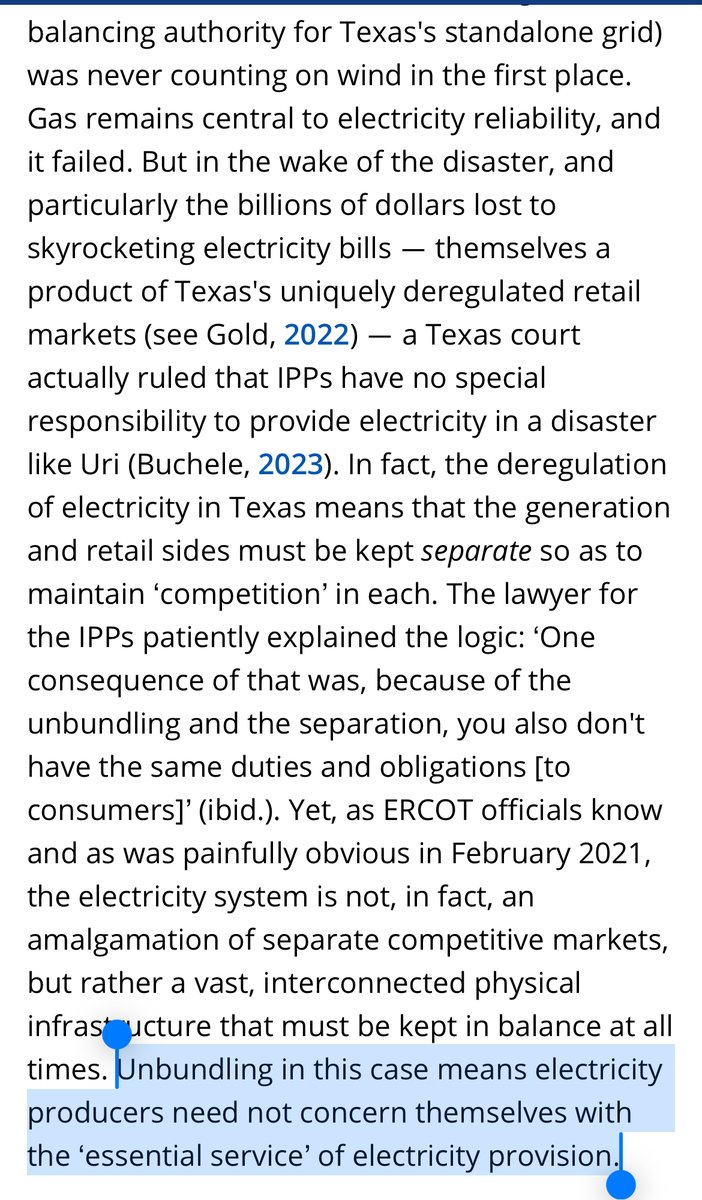
The renewable energy industry was enabled by this policy pushing IPPs, and in the USA, "In 2023, 81% of wind generation and 86% of utility-scale solar photovoltaic (PV) generation was provided by IPPs."
The flow of the wind & sun was enclosed by capital.
7/x
The flow of the wind & sun was enclosed by capital.
7/x
IPPs generally mean 'utility scale' projects, but renewable capital also includes small-scale rooftop solar.
Here's Elon Musk in 2015 claiming w/ solar panels + his Tesla Powerwall, households can exit the utility system & go off grid (narrator: no you can't). 8/x

Here's Elon Musk in 2015 claiming w/ solar panels + his Tesla Powerwall, households can exit the utility system & go off grid (narrator: no you can't). 8/x
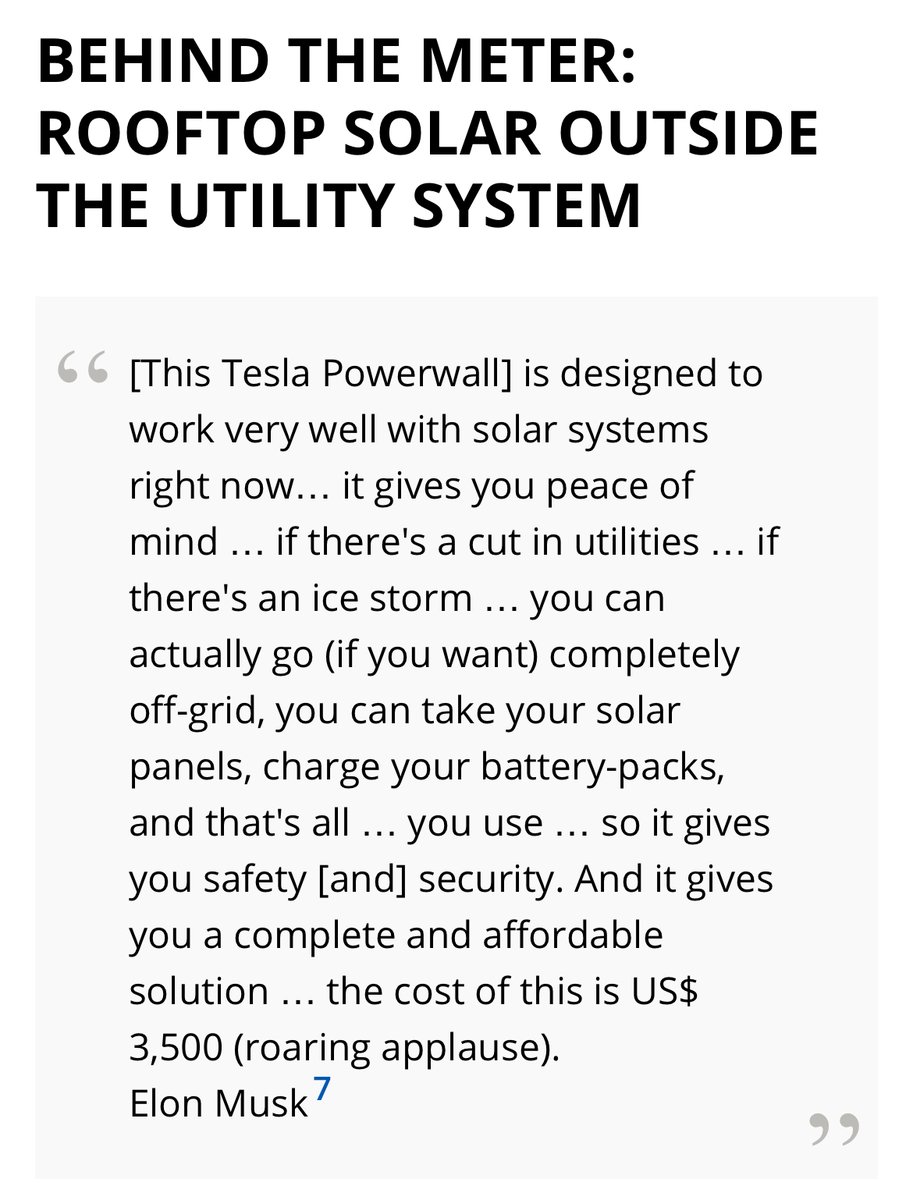
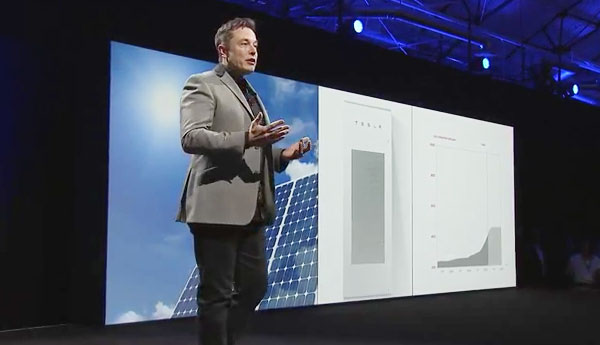
But rooftop solar is frankly more expensive than utility-scale, so households/installers needed a subsidy.
Net-energy metering did this, and shifted utility/grid/infrastructure costs onto poorer working class households (from Severin Borenstein). 9/x energyathaas.wordpress.com/2021/06/01/roo…
Net-energy metering did this, and shifted utility/grid/infrastructure costs onto poorer working class households (from Severin Borenstein). 9/x energyathaas.wordpress.com/2021/06/01/roo…
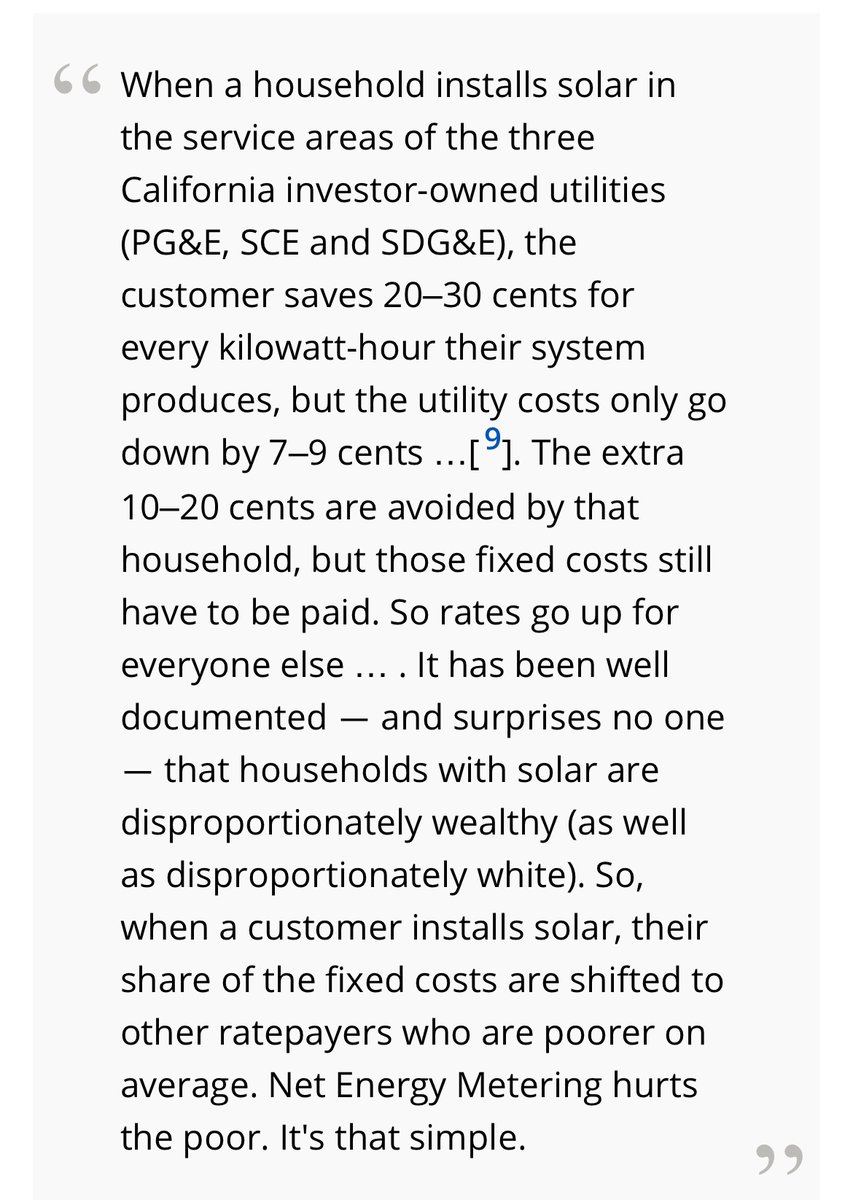
The entire idea of 'behind the meter' implies rooftop solar is detached from the utility system and its larger socialized cost and public service model. 10/x 
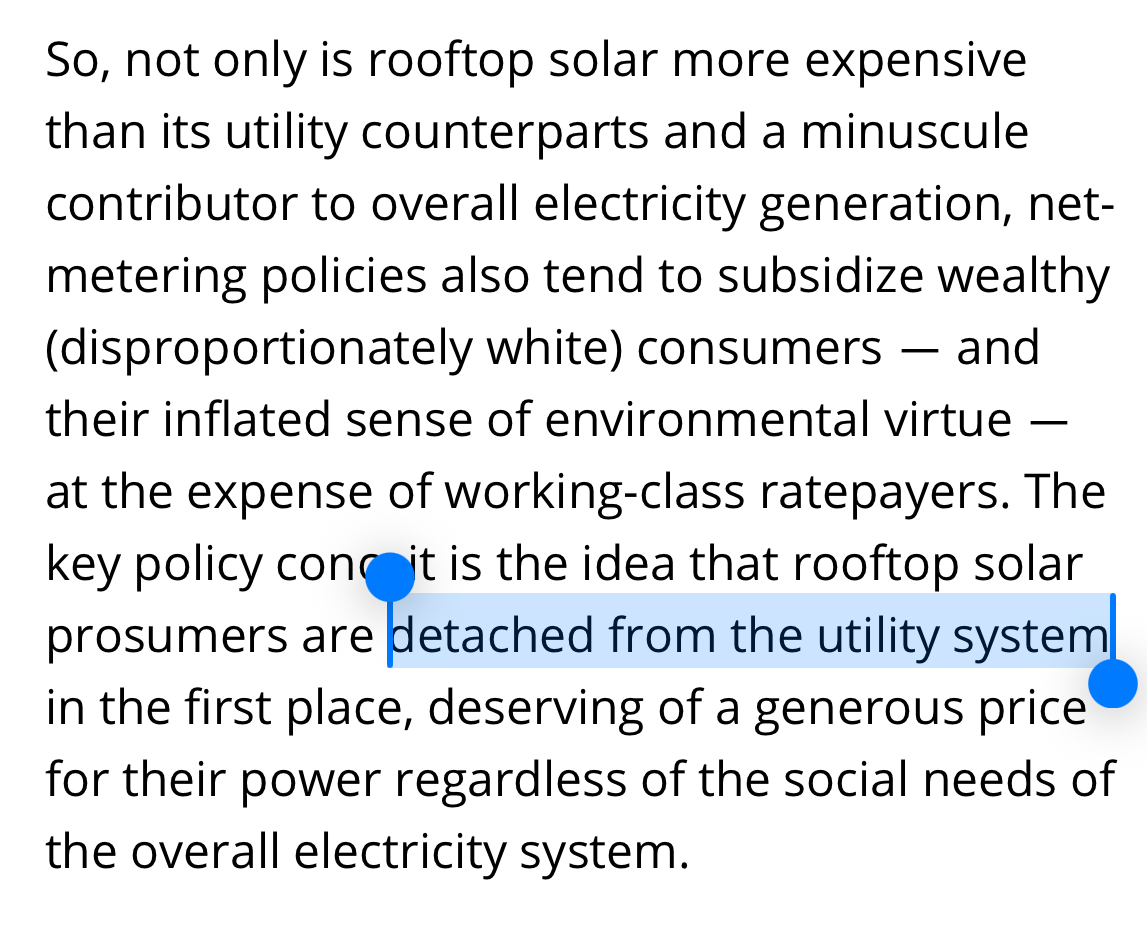
But homeowners≠capital. This model also relied on a new form of renewable capital: rooftop solar installation companies that are renowned for harsh labor practices and predatory loans.
Such solar capitalists were also dislodged from the public utility system. 11/x
Such solar capitalists were also dislodged from the public utility system. 11/x
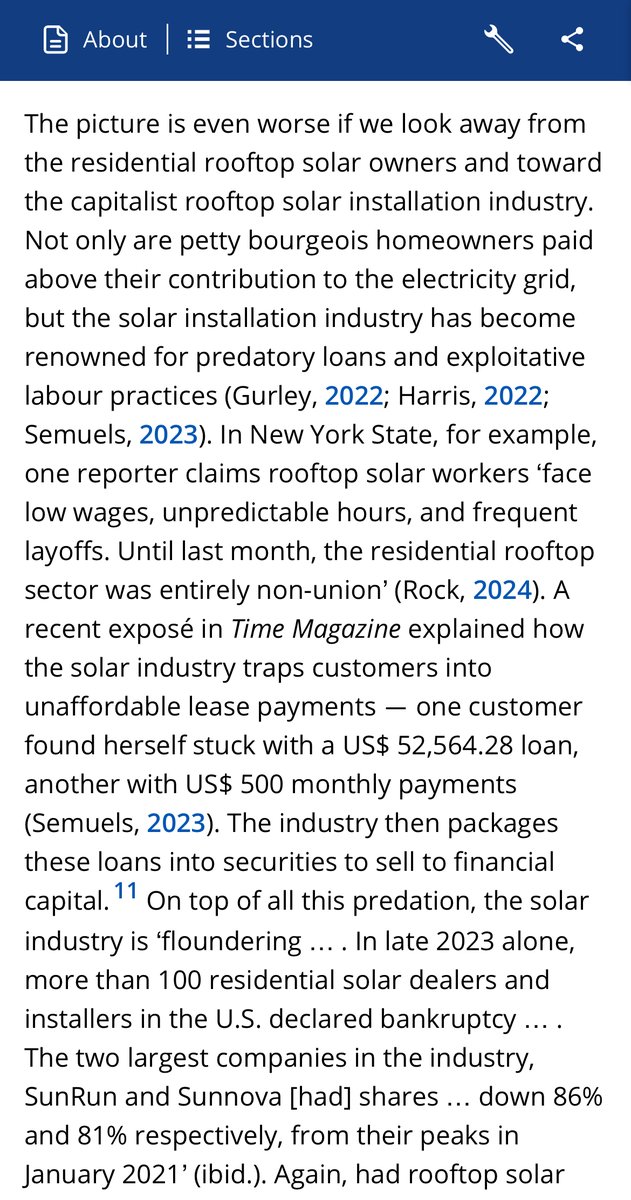
Finally, it's not just capital getting rich. Since solar/wind are often land-intensive, the landlord class is able to extract big 'rents' from solar/wind projects.
As Marx said, this class maintains the 'historic precondition' of capitalism - private property in land. 12/x
As Marx said, this class maintains the 'historic precondition' of capitalism - private property in land. 12/x
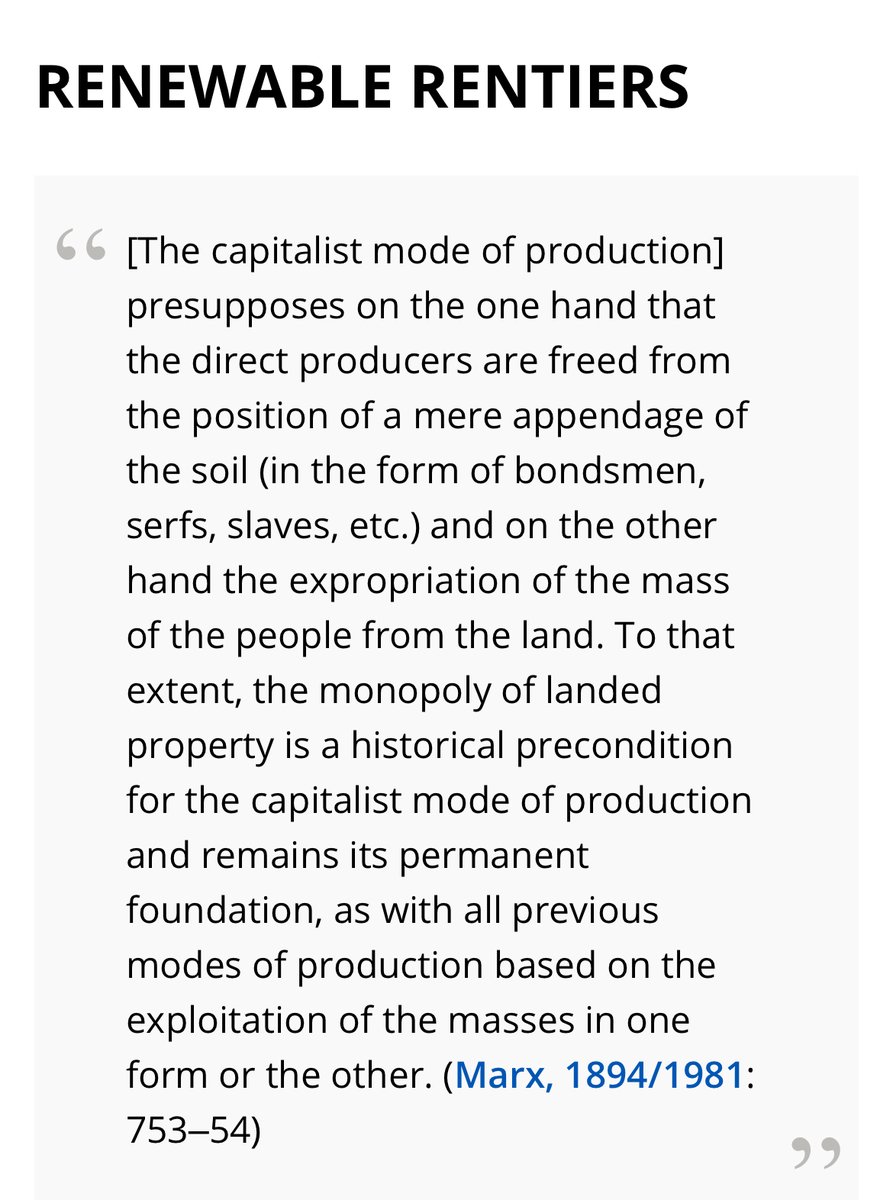
Some farmers are turning their land over to solar farms simply because they can make higher rents doing so. 13/x 
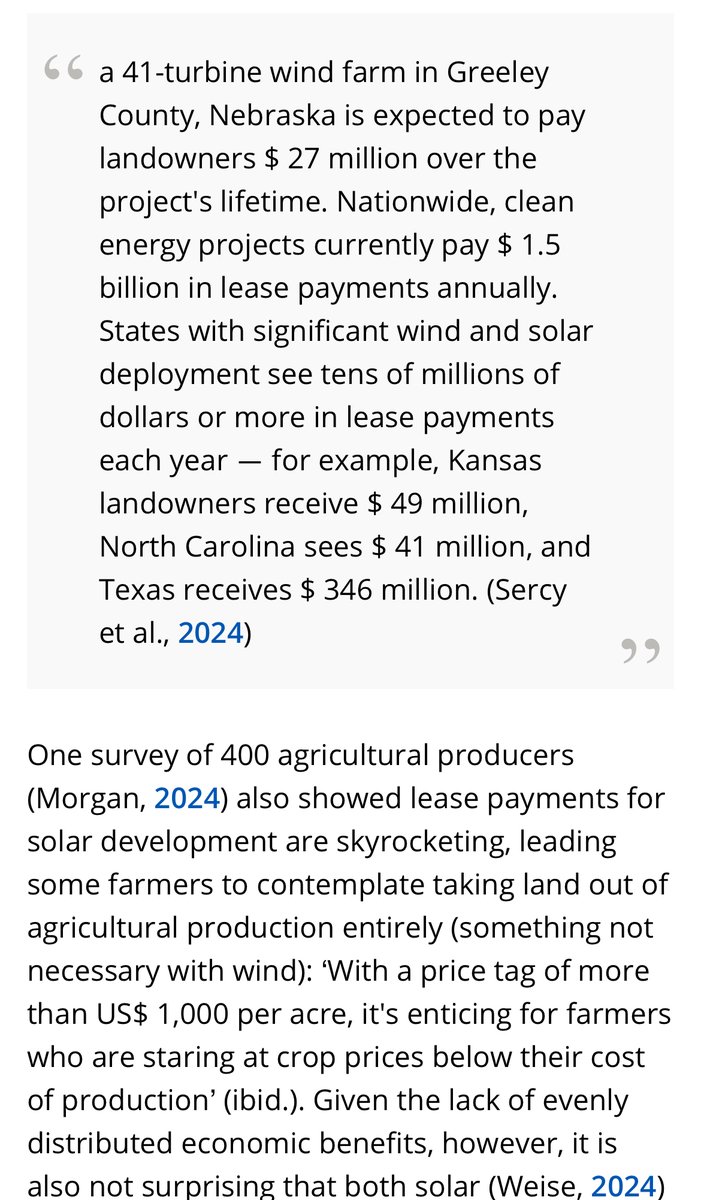
So what has deregulation got us? Not necessarily cheaper electricity. The main result? New centers of private wealth accumulation via renewable capital and rents. 14/x 
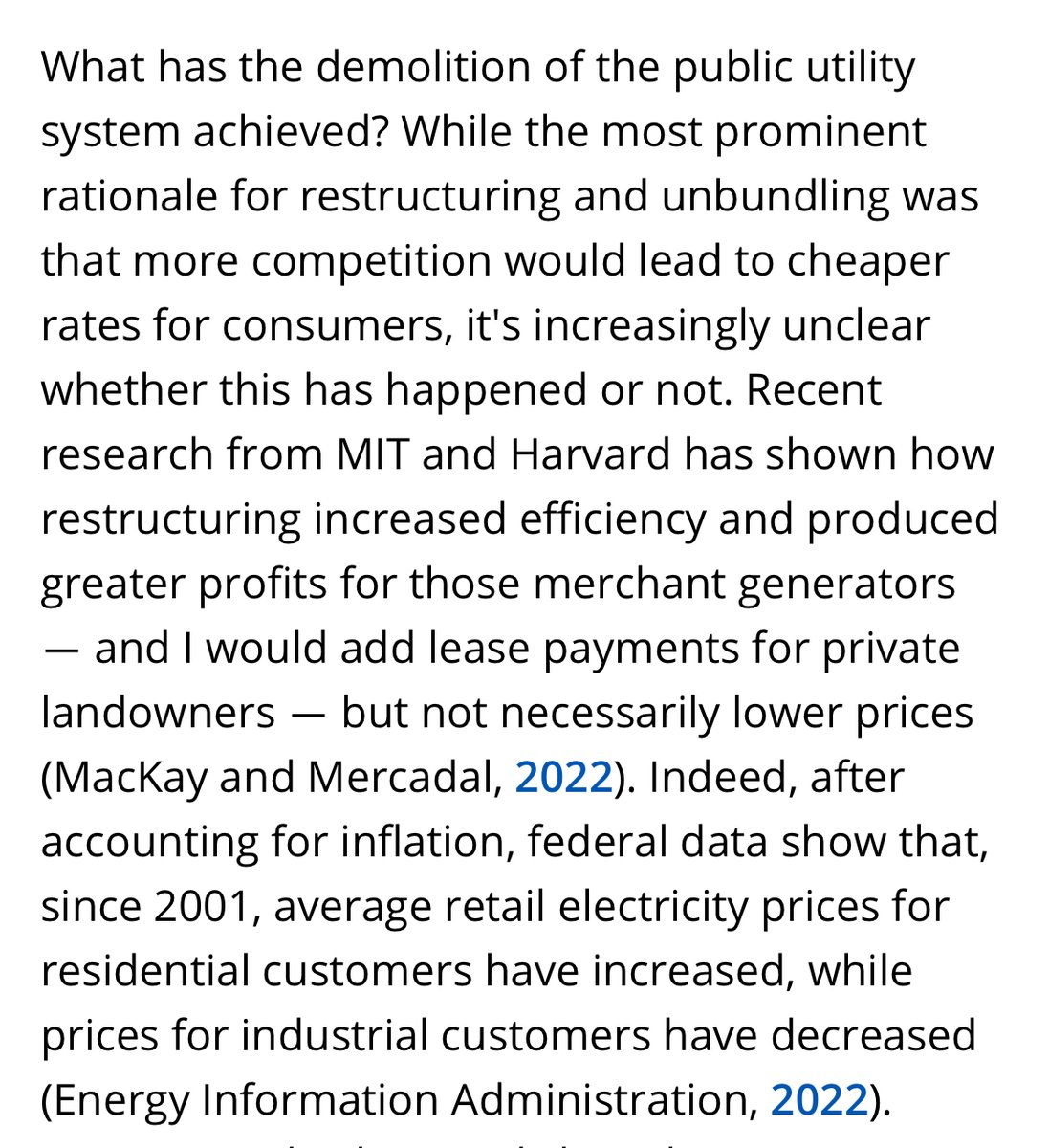
In Conclusion, it's not too late to reverse this process and go back to a 'public utility' model were electricity is planned as an 'essential service' with a socialized investment model. @fredstaffordcs & I make the case here. 15/x damagemag.com/2024/04/01/the…
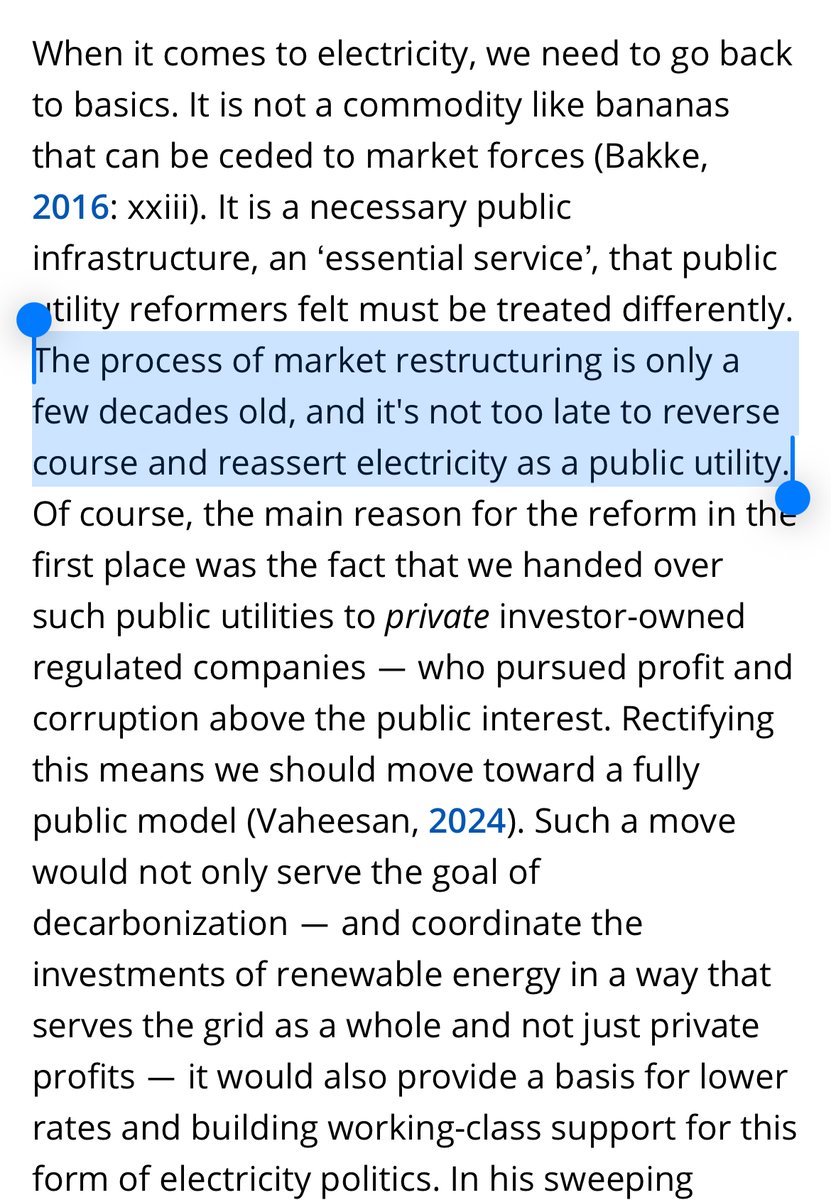
If we re-integrate the electricity system in a planned way, perhaps we can recapture 'the flow' resources of solar and wind to make use of them in a more coordinated and rational way. FIN
https://x.com/Matthuber78/status/1954887824781758593
@threadreaderapp unroll
• • •
Missing some Tweet in this thread? You can try to
force a refresh








